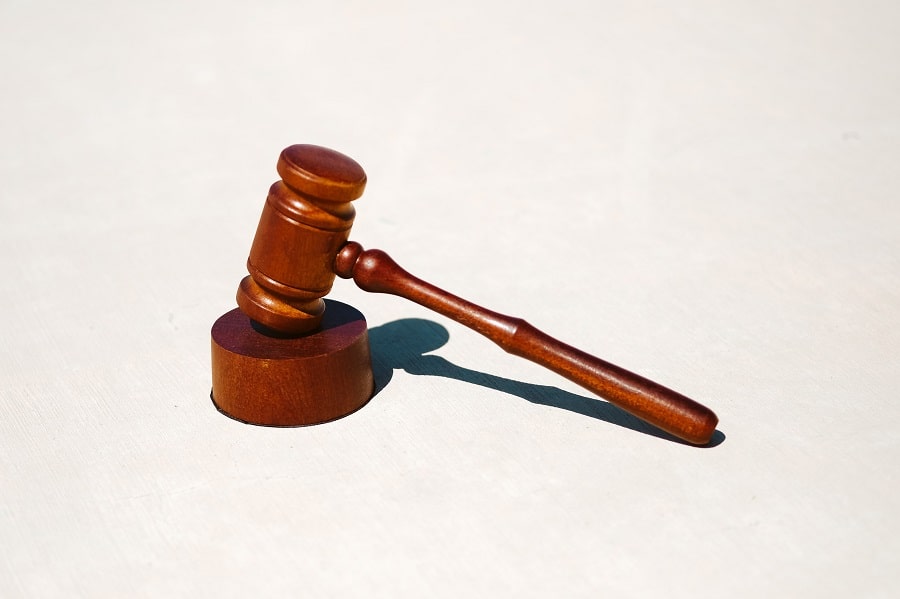False accusations can have devastating consequences, both for the accused and the accuser. Innocent people can find themselves facing criminal charges, a tarnished reputation, and even time behind bars, all based on a false claim. On the other hand, those who deliberately make false accusations may face severe penalties, including criminal charges and civil lawsuits.
But can you go to jail for false accusations? In this article, we’ll explore what constitutes a false accusation, why individuals are sometimes wrongfully accused, and the legal consequences of making false allegations.
What is a False Accusation and Why People Get Falsely Accused?
False allegations are claims of wrongdoing that are factually unsupported or untrue. These are also known as false reports or false claims.
Before we discuss the penalty for making false accusations, it is essential to look at why people are falsely accused, as only some of these come with a criminal charge. Below are a few reasons why people are sometimes wrongly accused:
- Misrecollection – Where an accuser incorrectly recalls the details of a crime
- Mistaken identity – Where an accuser mistakenly identifies the incorrect person as having committed a crime.
- Misleading forensic evidence – Where experts exaggerate statistical claims, for instance, DNA or hair analysis or forensic evidence [1] is tampered with, compromised, or misread.
- Malicious false accusations – Where an accuser intentionally provides police officers with an incorrect statement about an individual committing an offense
- Official misconduct – When law enforcement officials or prosecutors commit an act of misconduct or abuse of power when charging an individual for a crime or by asking leading questions that coerce a detainee into having false recollections of an event.
Giving a False Report to a Police Officer
A person can be charged with a crime for intentionally giving the police false information [2] in connection with a traffic stop while the officer is performing his/her duties. Possible violations include any of the following:
- providing a false answer
- presenting false insurance documents
- offering a false vehicle registration
- or giving the officer a borrowed or fake driver’s license
A conviction for giving false information would be a misdemeanor with up to six months in jail, a $1,000 fine, or both. However, if the false information was offered in an effort to evade arrest, additional felony charges could be possible [3] .
What to Do If You Are Falsely Accused of a Crime?
If you are falsely accused of a crime, you will most likely have criminal charges brought against you. In this case, there are several things to do and ways to handle the situation:
- Realize the severity of the situation – Gain an understanding of the severity of the allegations and take the charges seriously.
- Hire an experienced criminal defense attorney – Do not attempt to remedy the situation alone. Instead, remain silent and hire the best criminal defense attorney [4] to guide you through the process, give you legal advice, and protect your rights.
- Conduct a pre-file investigation – Before charges are filed, your attorney will gather evidence favorable to the accused and investigate the allegations further. Doing this is an effective strategy to convince the District Attorney (DA) to drop any charges should the investigation bring to light the charges brought are false.
- Undermine the accuser’s credibility – By impeaching an accuser, your criminal defense attorney will ask the witness questions that undermine their reputation for truthfulness, casting doubt about whether what they claim they witnessed is, in fact, true.
- File a civil suit or malicious prosecution claim – Here, the falsely accused brings a civil lawsuit against the individual who wrongfully accused them and seeks compensation for damages.
- Private Polygraph – Taking a private polygraph to prove your innocence is another way to boost your defense and sway prosecutors into dropping the charges and prevent you from getting a criminal record.
What Are the Penalties for Making False Accusations?
So, what is the punishment for a false accusation, and is making false accusations a crime? Yes. In California, making false accusations is a crime and can lead to serious legal consequences. Under Penal Code Section 148.5[5] , it is a misdemeanor to falsely report a crime to law enforcement.
And if you’re wondering whether you can go to jail for making false accusations, the answer is yes. If convicted, penalties for false accusations could result in fines of up to $1,000, up to six months in county jail, or both.
Additionally, individuals may face civil lawsuits for defamation or malicious prosecution if the false accusations harm another person’s reputation or lead to wrongful legal actions.
Can You Press Charges Against Someone for Making False Accusations?
Can false accusations get you arrested? Yes. Further, you can press charges against an individual who wrongfully accused you[6] by bringing a civil lawsuit against them. However, you must show that the defendant filed a frivolous claim against you, that they caused damages due to their false claim, and that they filed their lawsuit for another purpose, like harassment.
Hire a Criminal Defense Lawyer in California to Defend Yourself Against False Accusations
Because you can go to jail for false accusations and just as easily have false allegations filed against you, having a criminal defense attorney is one of the main defenses against false accusations[7] . Contact us at Manshoory Law if you have questions about false reports or find yourself being wrongfully accused – we are here to help.
References
- Manshoory, S. (2023, May 2). What is Forensic Evidence and How to Challenge It | Manshoory Law. Manshoory Law Group, APC. https://manshoorylaw.com/blog/challenging-forensic-evidence-in-criminal-trials/
- California Code, VEH 31. (n.d.). https://leginfo.legislature.ca.gov/faces/codes_displaySection.xhtml?lawCode=VEH§ionNum=31.
- Misdemeanor and felony possible consequences | Manshoory Law. (2022, January 17). Manshoory Law Group, APC. https://manshoorylaw.com/misdemeanor-and-felony-consequences/
- Parker, D. (2024, July 18). Your guide to the best criminal defense attorneys in California | Manshoory Law. Manshoory Law Group, APC. https://manshoorylaw.com/blog/best-criminal-defense-attorney-california/
- California Code, PEN 148.5. (n.d.). https://leginfo.legislature.ca.gov/faces/codes_displaySection.xhtml?lawCode=PEN§ionNum=148.5.
- Manshoory, S. (2021, September 20). What happens when someone presses charges against you? – blog. Manshoory Law Group, APC. https://manshoorylaw.com/blog/presses-charges-against-you/
- Manshoory, S. (2018, March 28). How to defend yourself against false accusations | Manshoory Law. Manshoory Law Group, APC. https://manshoorylaw.com/blog/defending-against-false-accusations/


